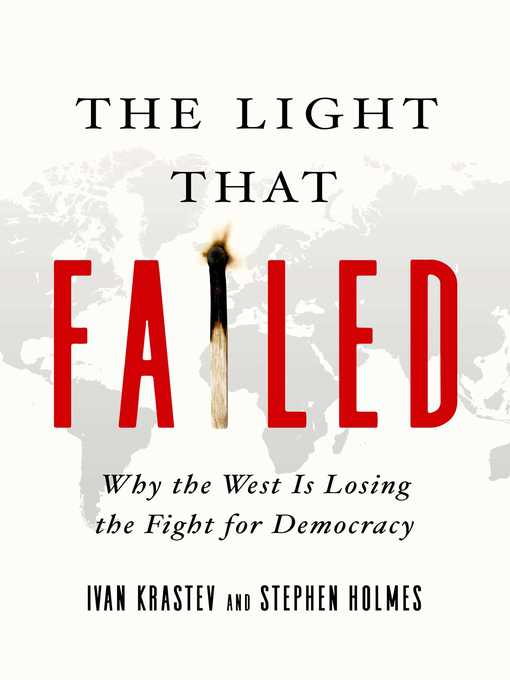
The Light That Failed
کتاب های مرتبط
- اطلاعات
- نقد و بررسی
- دیدگاه کاربران
نقد و بررسی

November 1, 2019
Two academics and policy experts bring considerable erudition to the conundrum of why anti-liberalism has gained currency since the fall of the Soviet Union, when the world seemed happy to see it go. According to Krastev (After Europe, 2017, etc.), a fellow at the Institute for Human Sciences in Vienna, and Holmes (New York Univ. School of Law; The Quest for the Trinity: The Doctrine of God in Scripture, History and Modernity, 2012, etc.), once communism fell, the "radiant future" of Enlightenment democracy--encompassing a separation of powers, checks and balances, free elections, freedom of the press, and so on--seemed the sole alternative model. However, in chapters moving from Central and Eastern Europe through Russia and China, the authors show how imitating the "masters" created a groundswell of resentment and backlash. In Central Europe, Hungary and Poland were at first content to imitate the Western model. Unfortunately, "Central and East European versions of liberalism had been indelibly tainted by two decades of rising social inequality, pervasive corruption, and the morally arbitrary distribution of private property into the hands of a few." Krastev and Holmes succinctly explain why this brand of populism and nativism would ring familiar in Russia, China, and eventually in the United States under Donald Trump. The authors also cogently explore the anti-immigration hysteria that has continued to plague these countries. In Russia, the authors see a convulsion of "aggressive isolationism" at work in addition to an effective destabilizing revenge theory bent on revealing the mask of hypocrisy of the U.S., especially in foreign affairs. Meanwhile, China, once an imitator of the Soviet Union, has ceased exporting its brand of Maoism and is reaping grandly the effects of centralized economic control. An informative study that conveys a subtle but powerful argument for the attraction of anti-liberal populism.
COPYRIGHT(2019) Kirkus Reviews, ALL RIGHTS RESERVED.

December 2, 2019
Political scientists Krastev (After Europe) and Holmes (The Quest for the Trinity) deliver a salient and incisive analysis of the decline of Western liberalism centered on the evolution of Central and Eastern Europe after the fall of the Berlin Wall. Describing the region’s political elites as genuine “converts” to liberalism who became trapped in a conflict between democratic ideals and entrenched cultural norms, Krastev and Holmes trace the current global rise in “populist xenophobia and reactionary nativism” to a backlash against the “politics of imitation” that emerged in post–Cold War Europe. The authors note the irony of newly democratic countries including Poland and Hungary being compelled by “unelected bureaucrats from Brussels” to enact policies required for E.U. membership, and study the contrasting examples of Russia, where elites simulated democratic norms while aiming to “kill the West’s victory narrative,” and China, where leaders appropriated Western technologies while resisting Western values. Krastev and Holmes also chart how Donald Trump’s instinctual sense that “America is the greatest victim of Americanization” began to resonate with the public in the wake of 9/11. Their lucid and cogent presentation mitigates the sense of discouragement many readers are apt to feel when reckoning with how liberalism “lost its way.” Those searching for what comes next should consider this an essential resource.

























دیدگاه کاربران